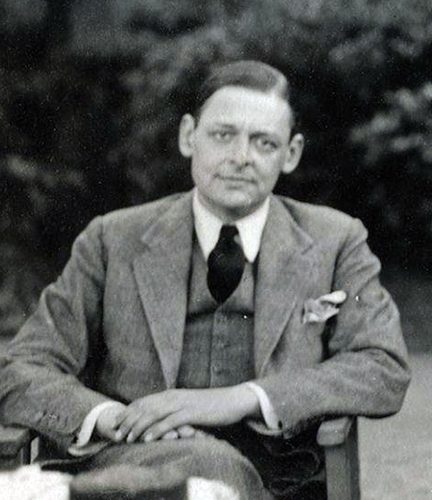
Photo by Lady Ottoline Morrell (Wikimedia CC public domain)
In 1948, the poet and future Nobel laureate T. S. Eliot published a book entitled Notes towards the Definition of Culture. I’ve always been struck by one particular passage in it:
. . . [W]hether education can foster and improve culture or not, it can surely adulterate and degrade it. For there is no doubt that in our headlong rush to educate everybody, we are lowering our standards, and more and more abandoning the study of those subjects by which the essentials of our culture—of that part of it which is transmissible by education—are transmitted; destroying our ancient edifices to make ready the ground upon which the barbarian nomads of the future will encamp in their mechanized caravans.
I am, I expect, far more “democratic” than T. S. Eliot was. I’m certainly not offended by the attempt to “educate everybody.” (No surprise: I myself come essentially from peasant stock, not from the economic or intellectual elite.) But I do share his concern that we’ve lowered our educational standards. And not just in academic terms. I think we’re in danger of losing our culture, our common core (if I may use that term in a non-public-policy sense), our shared moral assumptions, and our civility. And I surely don’t believe that matters have improved in this regard since Mr. Eliot wrote his essay shortly after World War Two.
Western civilization has been a very good thing, on balance. Although flawed, it has given much to the world through science, political liberty and constitutionalism, the abolition of slavery, great literature, increasing respect for women, the rise of representative government, concepts of human dignity and equality before the law, magnificent art, deep philosophy, and many other contributions.
But we’re not doing a very good job these days of transmitting our science and literature and history to the next generation, and the greatness of much in the West is now little appreciated — and often, indeed, denigrated.
For related reasons, a passage from another great twentieth-century poet — the first stanza of William Butler Yeats’s “The Second Coming” — has also haunted me for years:
I watch as many in the West lose their cultural self-confidence, becoming convinced that Western civilization has on the whole, been a force for evil — for racism, sexism, misogyny, violence, genocide, “homophobia,” exploitation — and become more or less paralyzed in the face of movements (such as the so-called “Islamic state”) that aren’t merely flawed but are genuinely nihilistic and incomprehensibly evil.










